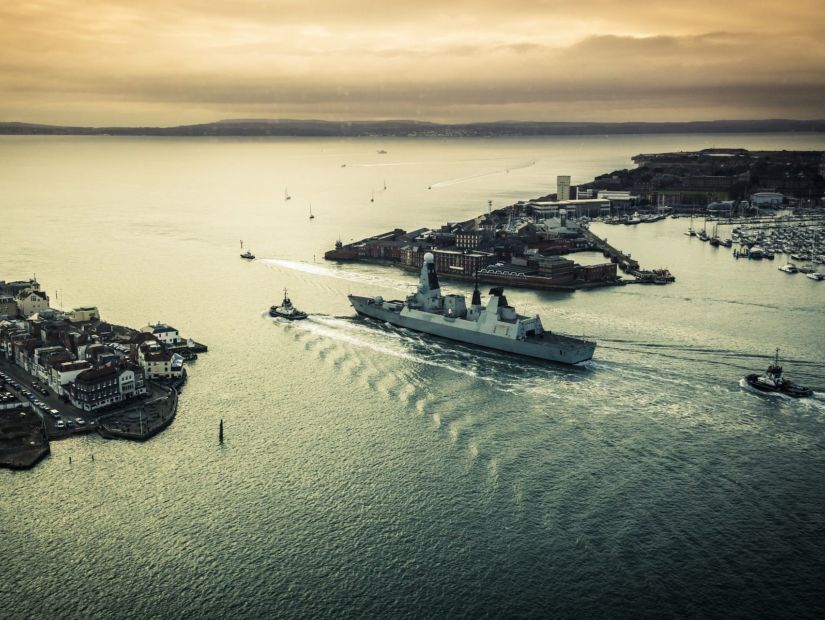IOTICS Digital Twin for Port of Portsmouth
- September 27, 2021
- William Payne

Cambridge University spin-out IOTICS is creating a digital twin of Portsmouth International Port as part of a £1.5m project to demonstrate an achievable modular green hydrogen generation system within the Port. The Shipping, Hydrogen & Port Ecosystems UK (SHAPE UK) project is part of the Clean Maritime Demonstration Competition, funded by the UK Department for Transport and delivered in partnership with Innovate UK.
IOTICS and its partners will create a digital twin of the port, interoperating with existing and emerging data from the port infrastructure and its activities as well as gathering data from the working hydrogen electrolyser. The IOTICS-enabled semantically defined digital twins, interoperating with data sources uncovered by KnowNow and deployed by Barter4Things will be an amalgamation to virtualise both dockside and offshore activities. Connected Places Catapult and Portsmouth University will leverage data from the digital twins within the port ecosystem to enhance and optimise operations with decision-support tools.
Portsmouth International Port is the UK’s largest and most successful municipal port, operated by Portsmouth City Council, and is one of the sites of the new Solent Freeport. It is committed to becoming the first carbon neutral UK port by 2030, and the first zero-emission port by 2050. “As a port operating in the heart of a major city, and that is owned by the people of Portsmouth, we have an obligation to do everything we can to minimise our impact as we continue to grow in the coming years.” said Jerry Clarke, Senior Project Manager at Portsmouth International Port.
The digital twin approach will create a scalable model that is translatable for other ecosystems, use cases and locations, offering a flexible foundation for further development. Sophie Peachey, Head of Customer Success at IOTICS said: “This project gives us many options to showcase the value of a digital twin approach by reusing data across different use cases. We will be looking at the business benefits for deploying renewable and clean fuels as well as the logistics of refuelling onshore equipment and sea-going vessels in a busy port. We’ll also be setting up the foundations of ways to look at environmental impacts of switching to clean fuel sources.”
Dr David Hutchinson, a Reader in Environmental Innovation and Innovation and Impact Development Manager for the Faculty of Technology at the University of Portsmouth, said: “The Government has a very ambitious environmental target within the maritime sector. SHAPE UK represents a milestone in the move to innovative low-cost green hydrogen generation and storage systems that bring significant reduction in carbon emissions and air pollution in and around Portsmouth and other UK ports.” He added, “The port is keen to act as a ‘living lab’ so there will be a great student experience element, which will be particularly relevant for students in our Faculty of Technology, such as those on the renewable energy degree.”
Led by the University of Portsmouth, SHAPE UK brings together a range of expertise from industry and academia, including Portsmouth International Port, Lloyd’s Register, Engas, IOTICS, B4T, KnowNow, COX, University of Brighton and the Connected Places Catapult.




